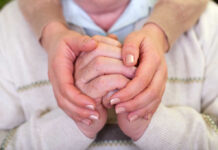
If you recently had a stroke, you might be experiencing certain behaviors and emotions unfamiliar to you. This article teaches all you need about behavioral changes after a stroke, their causes, treatments, and therapies that could help.
Why Do You Experience Strange Behavior after a Stroke?
A variety of reasons could cause this:
● Psychological causes: These changes in behavior are connected to mood disorders like depression.
● Physical causes: These changes involve brain injury and other chemical changes that happen in your brain after a stroke.
● Other causes: These changes are related to fear and frustration.
What Types of Behavior Changes Can Happen after a Stroke?
Some of the changes in behavior can include:
Pseudobulbar affect (PBA)
Pseudobulbar affect (PBA) is a regular occurrence after a stroke, brain injury, and dementia. Mood changes that don’t match the context of a situation or event may occur with PBA. However, it is uncommon for people who do not have PBA.
Apathy
After having a stroke, you may not care about the same things you once did. Additionally, you may lack the motivation you once had to perform your daily tasks. This apathy may arise if you have severe cognitive or physical issues after your stroke.
Shifts in mood
Emotional lability is a term used to describe experiencing unpredictable and particularly intense emotions. For instance, you could be happy one minute and begin crying for no reason the next.
Your emotions may also not match the context of the situation, or they may be emotions you won’t have experienced before the stroke.
Self-centeredness
Most stroke survivors may turn inward and prioritize their emotions and activities. They may also not care about the accomplishments or feelings of others. This type of behavior is commonly associated with a frontal lobe stroke.
Will Your Behavior Return to How It Was Before the Stroke?
Certain behavioral changes like depression may respond to treatment. Additionally, changes like anxiety and anger may get better with time. However, the changes may not happen overnight, so you must be patient with yourself as you combine therapy and medication.
Is There Treatment for These Behavioral Changes?
Treatments for these types of behavioral changes include:
● Cognitive behavioral therapy (CBT)
● Medications such as antidepressants
● Anger management and other behavioral management training.
Conclusion
If you have experienced behavioral changes, you must be gentle with yourself. It may be unsettling, but you must understand that you may not return to your old self.
However, not all change is bad. This means you are better off reframing your thinking to accept certain changes as a “new normal.”


















